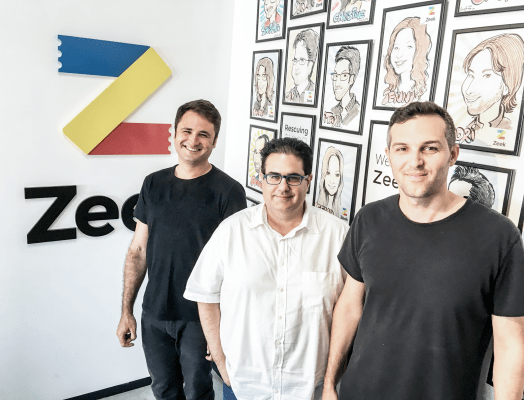Israeli startup Zeek, whose app lets you buy and sell unwanted store gift vouchers, has closed $9.5 million in Series B funding.
The round was led by Scale-Up Venture Capital, with participation from a long list of additional investors, some of which contributed to the company’s Series A early last year.
They include Blumberg Capital, Qualcomm Incorporated (via its venture investment group, Qualcomm Ventures) FJ Labs, Uri Levine, Emery Capital, Ton Ventures, Radiant Venture Capital, iAngels and Target Global.
Originally launched out of Tel Aviv in 2014, Zeek has since expanded to the U.K., which is now a key market for the startup and part of the reason for today’s announced fund-raise. The new capital will be used to consolidate its position in the U.K. and for further international expansion. This will include a hiring drive as Zeek plans to increase headcount in order to accelerate that growth.
The company’s app and marketplace lets you trade unwanted store credit, including gift vouchers, credit notes, gift cards and e-vouchers. The seller gets to offload credit that is of no use or before it expires, and the buyer gets to purchase credit at a significant discount.
In turn, Zeek takes a commission on each transaction. It’s a model identical to extremely well-funded U.S. startup Raise, which closed a $56 million round of Series B funding early last year, putting Zeek’s bank balance into sharp contrast.
With that said, in a statement Alex Lazovsky, General Partner of Scale-Up VC, is talking up Zeek’s unicorn potential, although I tellingly failed to get the startup’s current valuation.
“We believe that Zeek will swiftly surpass $1 Billion run-rate in branded currency transactions. Intimate understanding of consumer needs puts Zeek on track to become the next tech unicorn in Europe,” says the VC.
Meanwhile, Zeek co-founder and CEO Daniel Zelkind tells me the startup isn’t yet profitable but implies that it could be if it chose to. “Our revenue model makes profitably a question of strategy, not time,” he says. “With current scales, Zeek can become profitable today but we are planning to invest heavily in our technology, marketing and generally speaking hyper growth”.
To that end, I understand that Zeek has been experimenting with television advertising, which Zelkind says performed “incredibly well” both in terms of user acquisition and building trust. “The funding will be used primarily for growing the team, investing in marketing and PR – and another TV campaign for Christmas, and to further invest in our international expansion,” he adds.
